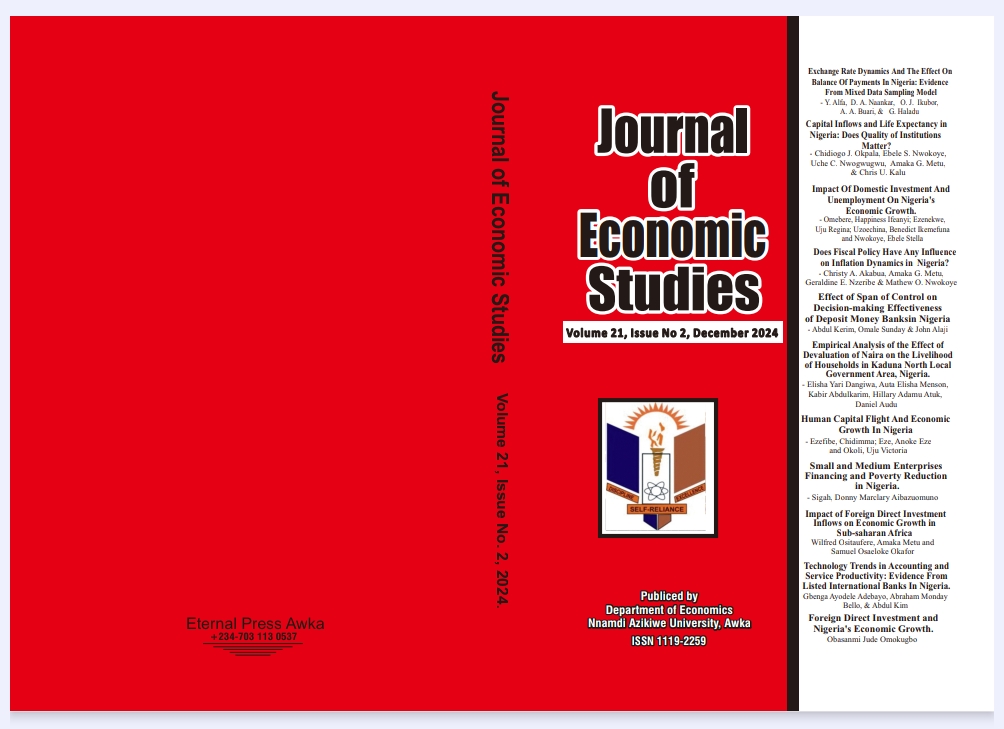CAPITAL INFLOWS AND LIFE EXPECTANCY IN NIGERIA: DOES QUALITY OF INSTITUTIONS MATTER?
Keywords:
capital inflows, life expectancy, institutionsAbstract
This study examines the relationship between capital inflows, institutional quality and life expectancy at birth in Nigeria for the period 1990 to 2023 under the two-gap theory and human capital theory. Central to most development goals is the need to better human life and wellbeing. Capital inflows on their part are necessary for providing additional funds needed to carry out economic activities. Human development was captured by one of its indicators which is life expectancy at birth. Capital inflows were measured by remittances, external debts and foreign aids. The Autoregressive Distributed Lag (ARDL) technique was employed in analysing the data. The empirical result showed that the selected capital flows jointly have significant impact on life expectancy at birth (human development) in Nigeria during the period under study. The study also indicates a discernible interaction between institutional quality and selected capital flows on human development in Nigeria. The study therefore concludes institutional frameworks complements the effect of capital inflows on human development in Nigeria, but has not been effective in averting the negative influence of capital inflows on human development in Nigeria looking at life expectancy at birth. The study recommends that Ministry of Budget and Planning should allocate adequate proportion of foreign aid and external debts to health-related projects which would ultimately enhance human development in Nigeria. Also, institutions should be made more effective to ensure accountability and efficient use of funds.


